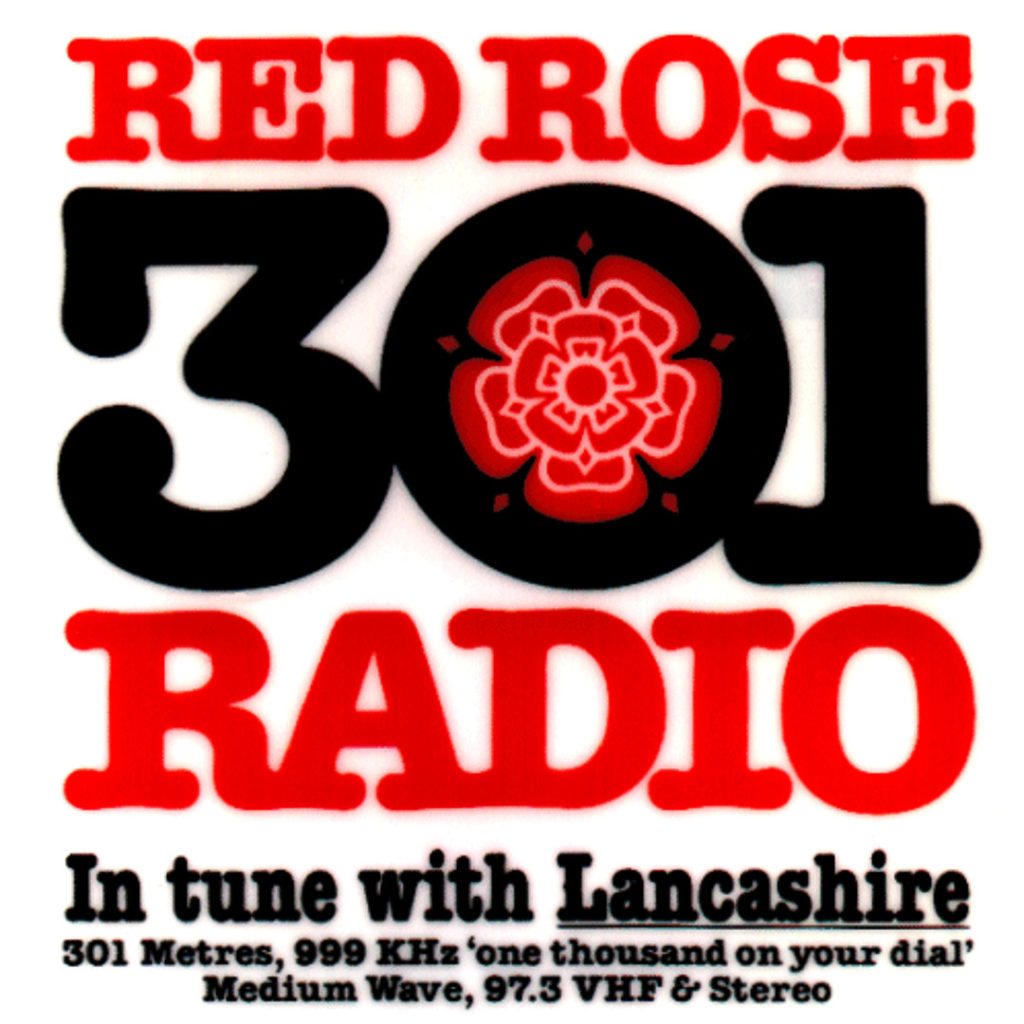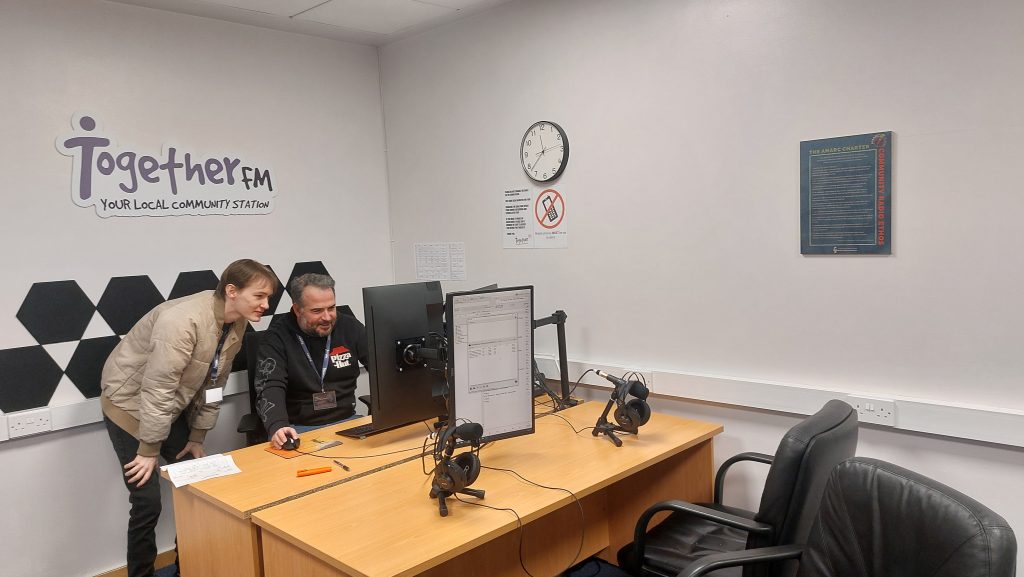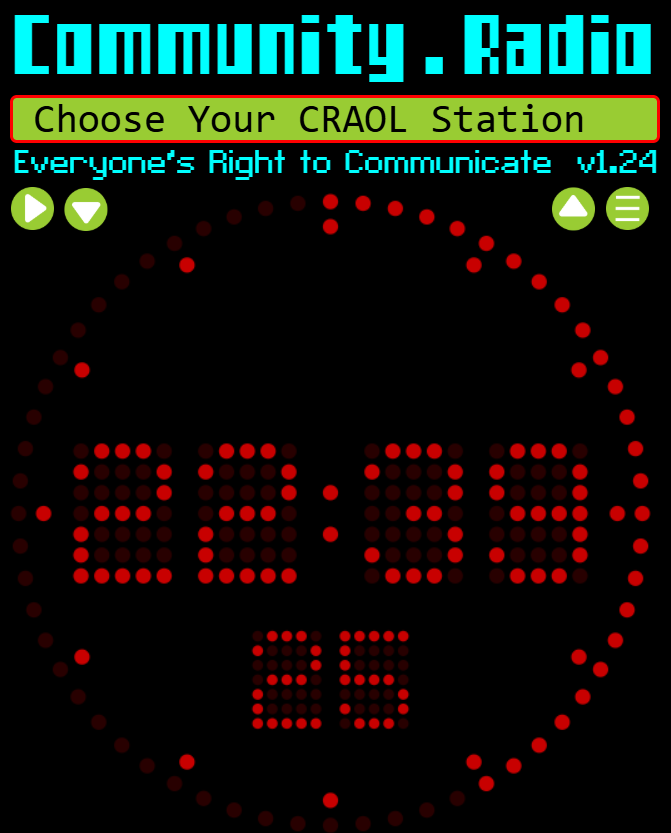We all know about wind up radios. How about a radio channel to unwind to. I have become fond of popping on BBC Radio 3 Unwind to – unwind to. It is also available on BBC Sounds (UK only) and Radio.ie player here with 6 hours of rewind to unwind to.

We all know about wind up radios. How about a radio channel to unwind to. I have become fond of popping on BBC Radio 3 Unwind to – unwind to. It is also available on BBC Sounds (UK only) and Radio.ie player here with 6 hours of rewind to unwind to.

Christmas is a popular genre for pop up Xmas radio stations.
here is a recording of me (Brian Greene) on Event FM for Christmas Day 2025.
Other Christmas stations that have popped up in Ireland are mentioned on Pirate.ie such as radio snowflake.
a small update – of the 4 stations first listed here only one remains active at the same URL. The issue? YouTuble live links are not permalinks. This can be minimised by never sharing the destination URL at YouTube, share a link that you control as a forwarder, like a BitLY QR code link.
Belfast’s Irish language community radio station Raidió Fáilte begins its 40th anniversary celebrations. (In Irish, with subtitles.) via NVTV
Vanessa & Brian Greene team up for a Tech Political Media Podcast.

Subscribe to the RSS for new episodes https://breaking.radio.ie/
In the UK, local radio has been changing. This might exclude Northern Ireland, but over the years heritage local radio stations have been purchased by big radio groups and rebranded as effectively a national brand. X, Heart, Capital, Smooth, Kiss, Magic, Virgin and Absolute.
Gone are the Red Rose Radio, Radio City (Liverpool) and Piccadilly that I would hear on the AM radio band back in my youth. These stations served their cities “Serving the City” (an old Radio Dublin ident. Local meant local, voice, content, weather and traffic. Local name and loyalty. But that all changed over the last 15-20 years. But, up until now, they held on to local breakfast and local drivetime in the evening. But all of that is about to go, to be fully centralised national sounds.
The Changing Face of Local Radio: Understanding Global’s Consolidation Strategy by Rob Watson at Decentered Media explains how this will impact society.
The implications of this shift extend beyond programming to the very foundations of social and cultural democracy. By concentrating media production and distribution in a few centralised locations, the industry limits the plurality of voices and perspectives that define a healthy democracy. Local radio has traditionally been a cornerstone of this plurality, offering platforms for diverse communities to share their stories, experiences, and concerns. The centralisation of media undermines this role, reducing opportunities for civic engagement and cultural representation.
Rob Watson, Decentered Media
This might not be mirrored in the North of Ireland (Northern Ireland) or in the Republic (ROI) but the consolidation of ownership has happened in Ireland with Bauer, Wireless and Q Networks having bought and consolidated in the past 10 years. Currently networked programmes are not common, but recent decisions by the regulator about networking of programmes for mid morning on Q102 coming in from London could open the flood gates to syndication across stations owned by a few large networks. In the past there were requests to syndicate The Last Word across Today FM and Newstalk, these request were turned down by the BAI.
Back in the UK there was changes to the regulation of Community Radio in 2024 which seemed to reduced the oversight of regulator on key commitments in broadcasting contracts. Perhaps the loss of commercial local radio is the opportunity of Community Radio to give identity and voice to areas that want voice and identity. Here participation of the people is required. Will there be sufficient take up of this opportunity. Does the scale of community radio match the needs of local franchise areas? Does local business need local advertising or should city and county councils support media hubs in areas, delivering true and genuine community development, and where community radio naming becomes geographic to the area served.
It is always sad to see the demise of radio even if it was expected to happen. But as there is change happening, there is opportunity to build on the legacy of local and breathe new life into civic social audio content with an ownership structure that cannot be bought, sold or flipped.
PS: There is a new Red Rose Radio online / DAB

in a summer 2024 report it points out that urban and suburban North Dublin has a news desert. An area where news is not served.
Currently, there is little evidence of news deserts in Ireland. Typically, local media cover a specific county and cater to the rural, suburban, and urban areas of that county. The Future of Media Commission noted that each county is served by a local newspaper and, outside Dublin, local radio often accounts for the majority-share of radio listenership. While this situation sounds positive, the reality may not be so healthy as local media encounter many challenges. Nevertheless, it is the rapidly growing suburbs of Dublin city that are at most immediate risk of being news deserts. These suburbs lack a media presence commensurate with their size. Many were served by “free newspapers” that often prioritised entertainment and local events rather than news. In the suburbs of North County
Uncovering news deserts in Europe: Risks and opportunities for local and community media in the EU
Dublin, these and related outlets have closed down, which makes this area a news desert.
The report is correct that local commercial media has declined. With local radio in Dublin City being presented from London 3 hours every morning on one station, the move is stark. But it has long been the norm, that local politics is not the topic of discussion on mid morning or breakfast radio in Dublin. If you want to hear a local TD or Councillor interviewed on radio in Dublin it will be about a local matter and on Community Radio of which there are 6 in Dublin. Phoenix FM (West Dublin), Dublin South, Dublin City, Near FM (North East), Liffey Sounds (South West) and. Raidio na Life (city wide Irish language station).
Also about 10 months before this report was released the independent Dublin Inquirer spread its beat from just Dublin City to also include Fingal. Dublin Inquirer is subscription supported and covers local democracy issues.
Dublin Gazette and Northside People are still available free sheets but the amount of hard journalism within these has declined over the years. The loss of North County Leader and Fingal Independent along with Malahide Gazette leave a gap in the local print market.
This comprehensive report about Irish media covers advertising trends also. During the Covid 19 pandemic there was a huge up swing in State Advertising and this has continued beyond the lockdowns. On radio, govt. funded ad campaigns can represent 60% of adverts per ad break. None of this avertising is placed on community media.
State advertising rules are unclear. There is no legislation defining the procedures for state advertising and no public register of how such advertising is distributed. The annual Liberties Rule Of Law Report 2023 notes that greater clarity is needed regarding the criteria and processes that determine which media outlets receive state/public advertising. Moreover, the report raises concerns about the use of commercial brokers to place advertisements on behalf of the state and state agencies. In particular, “one agency is owned and controlled by a company which itself owns a significant number of regional newspaper titles.”
With all of the funds mentioned in the Irish section of this report yet to start as 2025 starts, it will be interesting to monitor the impact the FoMC funds will bring to local and community media in Ireland. A definition of local media is also required as we transition to platform neutral funding.
Peace is the word. Trotsky scolded Marconi over his claims that broadcasting would end all wars. Technology is passive, it can carry positive and negative messaging. So while the mere invention of radio wont deliver war or peace it can be used for either.
As an avid anorak growing up in the 1980s the Voice of Peace was a regular news item on FRC shows I would listen to. There was something about the Middle East on fire from all out war, and a group of radio hippies in a ship in the middle of the Mediterranean broadcasting a message of peace to the people of the region.
November 2023 I made a tribute to the Voice of Peace. Hear it again here. And as a bonus some additional retro recordings of the peace ship project.

As chairperson of Craol and certified anorak – I get to visit radio stations and actually have a valid excuse to enjoy it!
This December I had the chance to visit Together FM which is online 24/7 from Ballyfermot in Dublin 10. Located in the spacious civic offices Together FM also boasts a satellite studio in nearby Cherry Orchard.
I got a tour of the Ballyfermot studios and met the keen and dedicated staff. The station are working hard to get a broadcast licence in 2025.

With very accessible studios -they are bright and air conditioned! The only window is to a control room (not pictured) where the editing and main station playout happens.

Together FM broadcasts across the week with a concentration of first air programmes at the weekend. The programmes are all prepared in advance and are broadcast as live (or with minor edits) at the scheduled time.
After the studio tour I had a great in depth discussion with some of the board of management of the station who told be of their plans for getting licenced and growing the station within their local area.
From what I have seen Together FM are busy and dynamic about their project and they have many of the characteristics of an exemplar station already adding social benefit to their area. I wish them the best is their quest and I will be back for their famous South Dublin hospitality in early 2025.
All Irish Community Radio Stations in one place!

This version of the radio player is branded for Craol and lists all Full and Parttime stations and is sympathetic to http and https streams. Not all streams have shifted to https in this sector.

Free Palestine